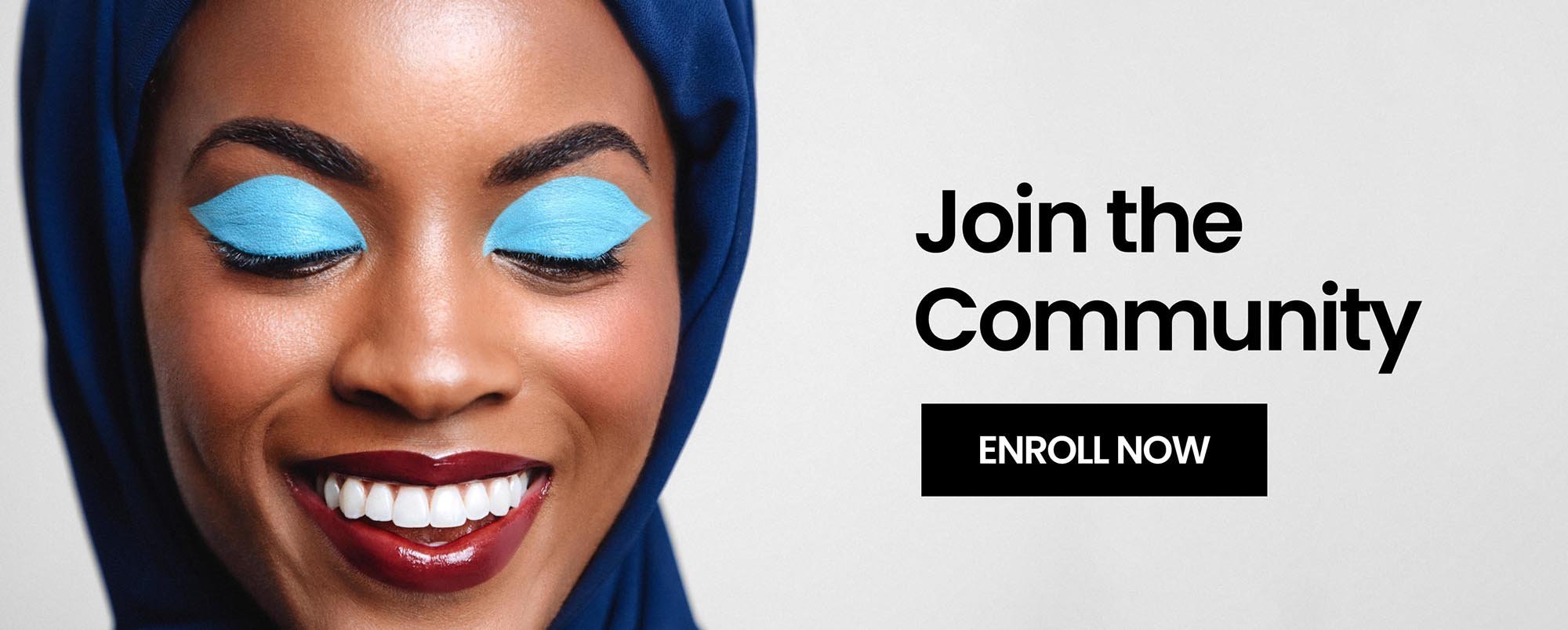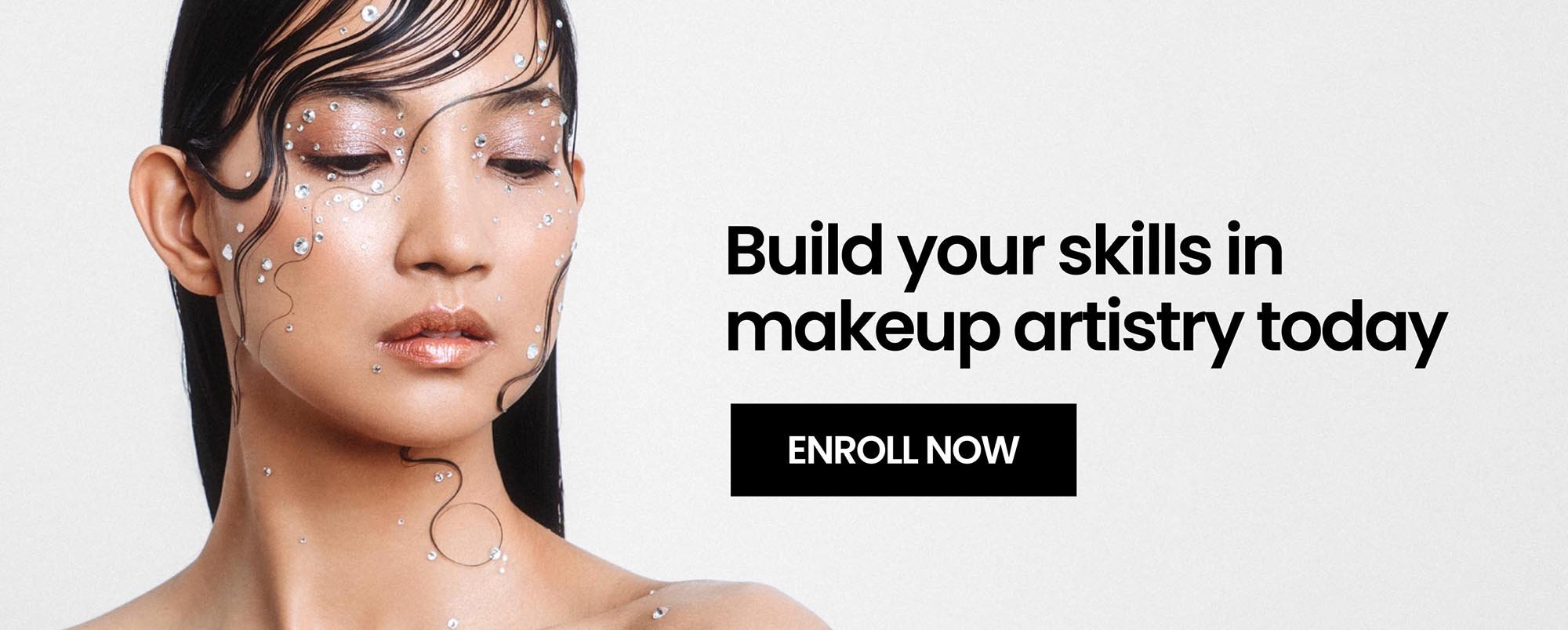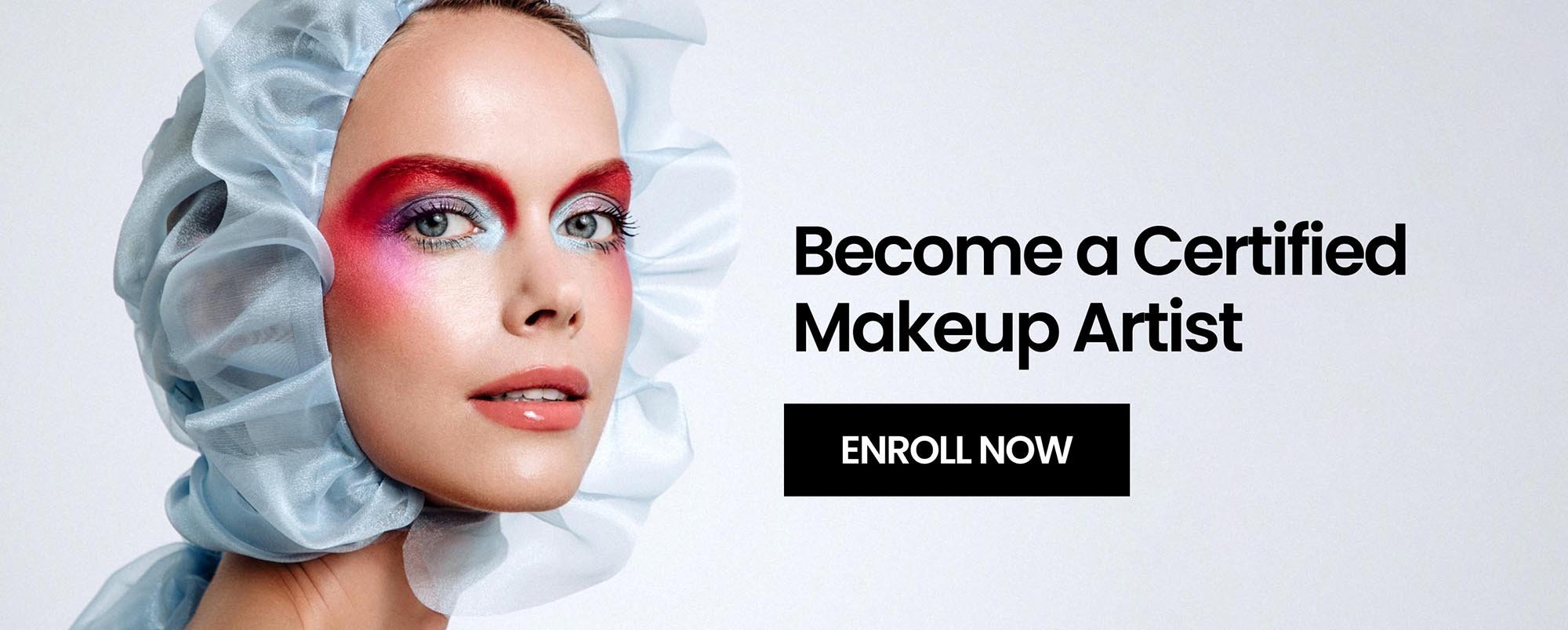How to Become a Makeup Artist: A Comprehensive Guide
Table of Contents:
Introduction
Makeup artistry is a creative and rewarding profession that involves using cosmetic products and techniques to enhance and transform a person's appearance. As a makeup artist, you have the opportunity to work in various industries such as film, television, fashion, and bridal, showcasing your talent and bringing visions to life.
The role of a makeup artist is indispensable, as they are responsible for creating the desired looks for actors, models, and clients for various occasions. This article aims to provide a comprehensive step-by-step guide on how to become a makeup artist, addressing important questions and offering valuable insights to help you embark on this exciting career path.
Assess Your Passion and Skills
Before diving into the world of makeup artistry, it's crucial to assess your passion and skills to ensure that this career is a good fit for you. A genuine passion for makeup and beauty is the foundation of a successful career in this field. Loving what you do will keep you motivated, dedicated, and eager to learn new techniques and stay updated with industry trends.
When evaluating your skills, consider your natural creativity and aptitude for makeup application. Makeup artistry involves color theory, symmetry, and the ability to visualize and create a look that complements an individual's features. Reflect on your current abilities and whether you have a good eye for detail, steady hands, and a strong sense of style. Don't worry if you're not an expert yet; skills can be developed and improved through practice and education. The key is to have a solid foundation of passion and a willingness to learn and grow as an artist.
Education and Training
Pursuing formal education and training in makeup artistry is highly valuable for your career development. While natural talent plays a significant role, acquiring professional knowledge and techniques will help you refine your skills, build a strong foundation, and boost your credibility in the industry. There are various options to consider when seeking education and training:
Makeup schools: Enrolling in a specialized makeup school allows you to learn from experienced instructors, covering a wide range of topics from basic makeup application to advanced techniques. These programs often include hands-on training, enabling you to practice and perfect your skills.
Online courses: If you prefer the flexibility of learning at your own pace, online courses can be an excellent option. Many reputable makeup artists and institutions offer online programs that cover essential makeup techniques and concepts.
Workshops: Attending workshops led by industry professionals can provide you with valuable insights and specialized techniques. Workshops are typically shorter than full-fledged courses and can focus on specific areas of makeup artistry, such as special effects makeup, bridal makeup, or airbrush techniques.
Regardless of the educational path you choose, the importance of hands-on experience and practice cannot be overstated. Building your expertise in makeup application requires consistent practice, so always allocate time to hone your skills and experiment with new techniques.
Building a Portfolio
A professional portfolio is an essential tool for showcasing your skills and work experience as a makeup artist. It allows potential clients and employers to view your talent and creativity, helping you stand out in the competitive industry. Here are some tips on creating a diverse and high-quality portfolio:
Work on various projects: To demonstrate your versatility and expertise, include a range of projects in your portfolio. This can include editorial work, bridal makeup, fashion shoots, and special effects makeup. By showcasing your skills across different styles and occasions, you'll be more likely to attract a wider range of clients and job opportunities.
Take high-quality photos of completed looks: The presentation of your work is just as important as the makeup itself. Invest in high-quality photos that accurately represent your talent and attention to detail. Collaborate with professional photographers or invest in a good camera and learn how to take well-lit, flattering photos of your completed makeup looks. Remember to include both close-ups and full-face images to give viewers a comprehensive understanding of your work.
As you gain more experience and work on new projects, update your portfolio regularly to reflect your growth and current skills. A well-curated and visually appealing portfolio can be the key to landing your dream job or attracting your ideal clients.
Networking and Gaining Experience
In the makeup industry, networking plays a vital role in building your reputation and opening doors to new opportunities. Connecting with industry professionals, such as photographers, models, hairstylists, and other makeup artists, can help you gain exposure, learn from their experiences, and collaborate on future projects.
Here are some ways to gain experience and expand your professional network:
Collaborating on projects: Offer your makeup artistry services for photoshoots, student films, or local theater productions. Collaborating with other professionals allows you to gain practical experience, build relationships, and add new work to your portfolio.
Volunteering at events: Look for events, such as fashion shows or charity fundraisers, where you can volunteer your makeup skills. Volunteering not only helps you gain experience but also demonstrates your commitment to the craft and provides networking opportunities.
Working as an assistant to an established makeup artist: Apprenticing under a seasoned makeup artist can be an invaluable learning experience. You'll have the opportunity to observe their techniques, learn about the business side of the industry, and potentially receive mentorship. This hands-on experience can fast-track your growth and help you build a strong foundation for your career.
By networking and gaining experience, you'll be better equipped to navigate the competitive landscape of the makeup industry and create a name for yourself as a talented and reliable makeup artist.
Developing a Personal Brand
Creating a unique personal brand is essential for standing out in the crowded makeup industry. Your personal brand reflects your style, values, and the quality of your work, making it easier for clients and employers to identify and remember you. Here are some tips to help you develop a strong personal brand:
Create a professional website: A well-designed website serves as your online portfolio and a central hub for showcasing your work, sharing your story, and providing contact information. Invest time in creating an aesthetically pleasing and easy-to-navigate website that highlights your skills and represents your unique style as a makeup artist.
Maintain an active social media presence: Social media platforms, such as Instagram, Facebook, and Pinterest, offer excellent opportunities for makeup artists to showcase their work and connect with potential clients. Regularly post high-quality images of your makeup looks, share behind-the-scenes content, and engage with your audience to build a loyal following. Be sure to use relevant hashtags and engage with others in the industry to increase your visibility and reach.
Consistently produce high-quality work: Your reputation is built on the quality of your work. Strive for excellence in every project you undertake, continuously learning and refining your skills. A consistent track record of high-quality work will strengthen your personal brand and make it easier for clients and employers to trust and recommend you.
Developing a strong personal brand takes time and effort, but it is an investment that can help you stand out, attract your ideal clients, and build a successful career as a makeup artist.
Obtaining Certification and Licensing (if necessary)
In some regions, makeup artists are required to obtain certification or licensure to work professionally. These requirements vary by location and are typically in place to ensure that professionals meet specific standards of education, experience, and sanitation practices.
To determine if certification or licensure is required in your area, research local regulations by consulting your state or country's official websites, or contacting local licensing boards or relevant authorities. Some regions may require makeup artists to complete a specific number of training hours or pass a licensing examination.
If certification or licensure is necessary, be prepared to fulfill these requirements by enrolling in an accredited makeup program, completing the necessary training hours, and successfully passing any required examinations. Obtaining certification or licensure not only demonstrates your commitment to professional standards but can also boost your credibility and enhance your career prospects.
Always stay informed about changes in regulations and requirements, as they may evolve over time, and ensure that you maintain any necessary certifications or licenses throughout your career.
Continuing Education and Staying Updated
In the ever-evolving makeup industry, it's crucial to stay current with the latest trends, techniques, and products. This will help you maintain a competitive edge, attract a diverse range of clients, and demonstrate your commitment to professional growth. Here are some suggestions for staying informed and up-to-date:
Attend workshops and trade shows: Participating in workshops and trade shows allows you to learn new techniques, discover emerging trends, and connect with other professionals in the industry. These events can provide valuable insights into the latest innovations, enabling you to offer your clients the best possible services.
Follow industry influencers: Keep an eye on prominent makeup artists, beauty brands, and industry publications through social media and blogs. By following their work, you'll gain inspiration, learn about new products, and stay informed about the latest trends and techniques. Additionally, engaging with these influencers can help you expand your professional network and increase your visibility within the industry.
Continuing education and staying updated on industry developments is an ongoing process that requires dedication and curiosity. By investing time in your professional growth, you'll be better equipped to offer your clients the latest and most innovative makeup techniques, ensuring a successful and fulfilling career as a makeup artist.
Conclusion
Embrace Your Passion and Pursue a Rewarding Career as a Makeup Artist
In this comprehensive guide, we've covered the essential steps to becoming a successful makeup artist. From assessing your passion and skills, pursuing education and training, building a professional portfolio, networking, developing a personal brand, obtaining necessary certifications and licenses, to staying updated with industry trends, each step plays a vital role in shaping your career.
As an aspiring makeup artist, it's important to remember that success in this industry requires dedication, hard work, and a genuine passion for your craft. With determination and perseverance, you can overcome challenges, build a strong reputation, and achieve a fulfilling career in the exciting world of makeup artistry. Embrace your passion, never stop learning, and seize every opportunity to grow and showcase your talent. The journey may be challenging, but the rewards are worth the effort.
FAQ: frequently asked questions
Makeup artistry is a fascinating and rewarding profession that combines creativity, skill, and passion to transform and enhance a person's appearance. With a wide range of opportunities in various industries like film, television, fashion, and bridal, the makeup artist profession is diverse and full of potential. This article aims to address key questions and provide valuable insights to help you embark on this exciting career path.
What qualifications do you need to be a makeup artist?
While there are no specific qualifications required to become a makeup artist, pursuing formal education and training in makeup artistry is highly beneficial. It helps you gain essential knowledge, techniques, and credibility in the industry. Options for education include makeup schools, online courses, and workshops, which provide hands-on experience and practice.
How do I get started as a makeup artist?
To get started as a makeup artist:
Assess your passion and skills for makeup artistry.
Pursue education and training in makeup artistry.
Build a professional portfolio showcasing your work.
Network with industry professionals and gain experience.
Develop a personal brand with a professional website and active social media presence.
Obtain certification and licensing if necessary.
Stay updated with industry trends, techniques, and products.
What do I need to be a makeup artist?
To become a makeup artist, you need:
A genuine passion for makeup and beauty.
Education and training in makeup artistry.
A professional portfolio showcasing your work.
Networking skills and industry connections.
A personal brand with a strong online presence.
Necessary certifications and licenses, depending on your location.
A commitment to staying updated with industry trends and developments.
Is a makeup artist a good career?
Yes, a makeup artist can be a fulfilling and rewarding career for those passionate about makeup and beauty. It offers a diverse range of opportunities in various industries and allows for creativity and personal growth. However, it can be competitive and may require dedication and hard work to succeed.
Does a makeup artist make money?
Makeup artists can make a good income depending on their experience, skill level, and clientele. Factors such as location, specialization, and reputation can also impact earning potential. Successful makeup artists can earn a comfortable living, while top-tier artists can earn a substantial income.
Who is the highest-paid makeup artist?
The highest-paid makeup artists are typically those who have established a strong reputation and clientele in the industry. They often work with celebrities, top fashion brands, and in high-profile events or productions. Some renowned makeup artists include Pat McGrath, Charlotte Tilbury, and Mario Dedivanovic.
How many months does it take to learn makeup?
The time it takes to learn makeup depends on your individual learning pace and the level of expertise you wish to achieve. Basic makeup techniques can be learned within a few months through dedicated practice and education. However, mastering advanced techniques and building a successful career may take years of practice, experience, and continuous learning.
How do I make money as a makeup artist?
To make money as a makeup artist:
Develop a strong portfolio and personal brand.
Network with industry professionals.
Offer your services for various events and productions.
Specialize in a specific niche, such as bridal, editorial, or special effects makeup.
Consider starting your own makeup business or working as a freelance artist.
How much does it cost to start doing makeup?
The cost of starting a makeup career varies depending on the education and training you choose, the quality of your makeup kit, and other business-related expenses. Costs to consider include:
Makeup school or courses, ranging from hundreds to thousands of dollars.
A professional makeup kit, which can cost anywhere from $500 to over $2,000, depending on the quality and variety of products.
Marketing materials, such as a website, business cards, and promotional materials.
Licensing or certification fees, if applicable in your location.
How can I start my own makeup business from home?
To start a makeup business from home:
Develop a business plan outlining your services, target market, pricing, and goals.
Register your business and obtain any necessary permits or licenses.
Set up a dedicated, sanitary workspace for client appointments.
Invest in a high-quality makeup kit and professional equipment.
Create marketing materials, such as a website and social media presence, to promote your services.
Network with local industry professionals and potential clients.
How do I sell myself as a makeup artist?
To sell yourself as a makeup artist:
Develop a strong personal brand and professional portfolio.
Be confident in your skills and knowledge.
Maintain an active online presence, showcasing your work and engaging with your audience.
Attend industry events to network and build connections.
Seek client testimonials and referrals to boost your credibility.
What are the risks of being a makeup artist?
Some risks of being a makeup artist include:
Unpredictable income, especially for freelancers.
Competition in the industry.
Physical strain from long hours and standing.
Potential exposure to allergens or irritants from makeup products.
Challenges in maintaining a work-life balance.
What are the pros and cons of being a makeup artist?
Pros:
Opportunities for creativity and self-expression.
Diverse career paths and potential for specialization.
Networking and collaborating with other professionals.
Potential for financial success and growth.
Personal satisfaction from transforming clients' appearances and boosting their confidence.
Cons:
Competition in the industry.
Unpredictable income and work hours.
Physical strain from long hours and standing.
The need for continuous education and staying updated on trends.
Potential difficulties in maintaining a work-life balance.
Which degree is best for makeup artist?
While a degree is not necessary for becoming a makeup artist, obtaining a diploma or certificate in makeup artistry, cosmetology, or a related field can provide valuable education, training, and credibility in the industry.
How do beginners learn basic makeup?
Beginners can learn basic makeup through:
Online tutorials and videos.
Books and magazines focused on makeup techniques.
In-person or online makeup courses and workshops.
Practicing on themselves or friends and family.
Seeking feedback and advice from experienced makeup artists.
Can makeup be self-taught?
Yes, makeup can be self-taught through dedicated practice, online tutorials, books, and other resources. However, formal education and training can provide structured learning, hands-on experience, and professional guidance that may be beneficial for a successful career.
What makeup should I learn first?
As a beginner, focus on mastering basic makeup techniques, such as:
Skin preparation and foundation application.
Concealing and contouring.
Eyebrow shaping and filling.
Eye makeup, including eyeshadow, eyeliner, and mascara.
Blush and highlighter application.
Lip color application and techniques.
As you become comfortable with the basics, you can move on to more advanced techniques and explore various makeup styles, such as:
Smokey eyes and cut crease eyeshadow techniques.
Color correcting and advanced skin techniques.
False eyelash application.
Makeup for different face shapes and skin tones.
Special occasion and editorial makeup looks.
Special effects makeup and creative makeup designs.
By starting with the fundamentals and progressively advancing your skills, you'll develop a strong foundation for a successful career in makeup artistry. Remember to practice consistently, seek feedback, and stay updated with industry trends and techniques to continually improve your craft.



